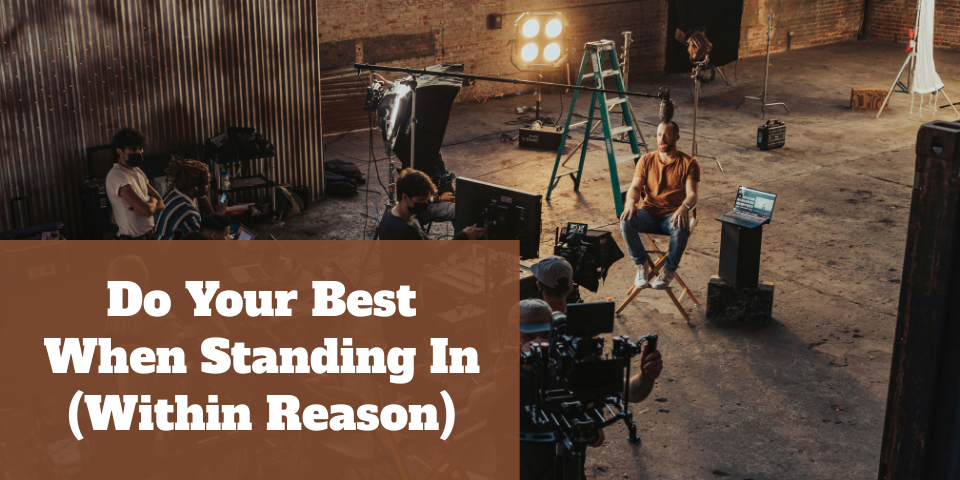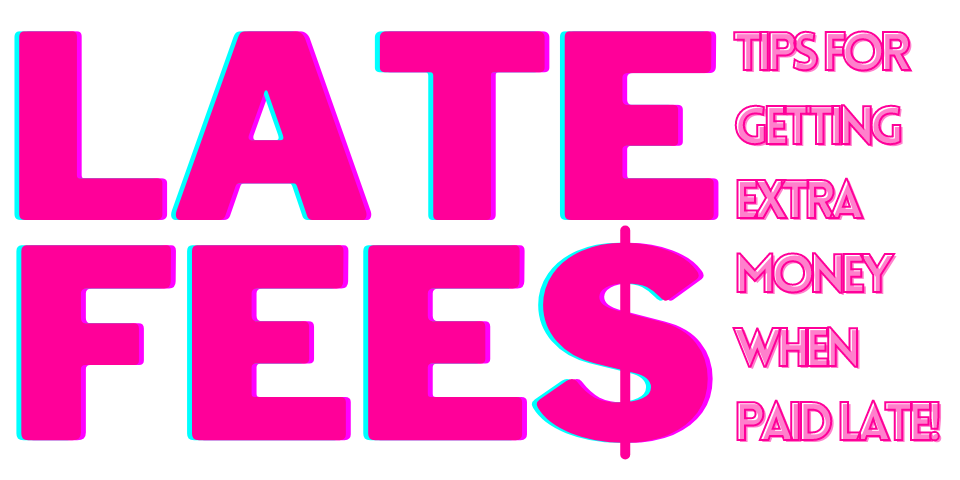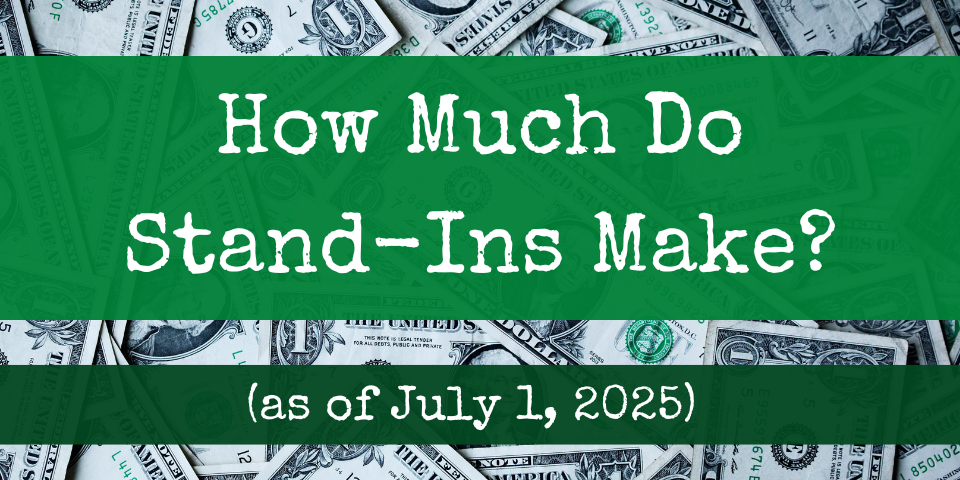I just booked my first stand-in job for the lead of a SAG series pilot. I have years of experience in professional acting, including currently, and took the job not just for supplemental income but because I’m looking forward to learning from a stand-in’s perspective.
I was told there would be several instances where I would be asked to read my actor’s lines on the job. I gathered that actual ‘acting’ is not required of stand-ins, but does it work against me if I actually act out the scenes instead of dry-reading the lines? (while hitting all the physical nuances and levels of my actor, of course – I take the responsibilities I’m hired for very seriously)
I don’t want to give the impression that I’m trying to upstage anyone, but as a trained actor always up for the opportunity to read a script as best as I can, is this appropriate as long as I’m still able to do 100% of the notes/observations/directions/levels/etc that are expected of me as a stand-in?
— Kelly in Los Angeles
Response from Ben Hauck
Hi Kelly! Thanks for contacting Stand-In Central!
When stand-ins are asked to do the lines in a scene, the affectionate name for it is “Second Team Theater.” But if you’re a serious actor, the name can sound a bit belittling!
I’m an actor, too. I rarely work stand-in gigs that ask for lines. On dramatic productions I’ve worked on (television and film), when I have been asked to do lines, I usually do them with little to some “acting.” What’s tough is that I don’t always know the full context of a scene to give a proper performance, meaning that I rarely know my actor’s superobjective in the scene, which may affect a proper delivery of the lines.
Marking rehearsal may give me some insight into a proper performance, though it may be a bit awkward doing much “acting” for fear it comes off strangely to my actor should he show up to watch a second-team rehearsal. It’s tough to say whether your actor would care about that — it ultimately just depends. I would say that as a stand-in you don’t need to tear up in a crying scene, for example. Also, if your actor handles props in a scene, I would generally discourage you from using the props because the props department may have preset them or may not want to reset them.
But you’ll have to see what the production wants in order to figure out what you “should” do in terms of acting your scene and doing your actor’s lines. Recently I worked three months on a production where we never, ever did lines. I’ve been on shows where the stand-ins almost always do lines so that the steadicam operator can work out the scene and his timing. I’ve never been on a dramatic production where you had to “fully act” a scene.
On one non-dramatic production I’ve recently worked on (a comedy television series formatted like a news show), I’ve had to do lines off the teleprompter. On that job, the sound department in particular encouraged a dynamic vocal range when performing because that is how the principal performer presented, and it helped them do their job during rehearsal. I was familiar with the performer’s over-the-top performance style — a style which I was comfortable doing, too — and I basically settled in and did things as I would “act” them. The production team was very appreciative of the commitment as I think a lesser performance would have been less helpful for them to prepare for the show.
Ultimately, though, the show is “not about you,” so while it may definitely help yourself as an actor to fully “act” (and showcase your talent!), you’re there to be effective as a stand-in. On most dramatic productions, I would hesitate from doing so much “acting” that it slows down the production day or the needs of the production team at the moment — unless you know it would really help them out.
Congrats on the job, Kelly! Sounds awesome and a real opportunity to learn a ton!
What has been your experience with doing lines when standing in? How much acting do you put in? How much is too much? Share your thoughts below!






Leave A Comment